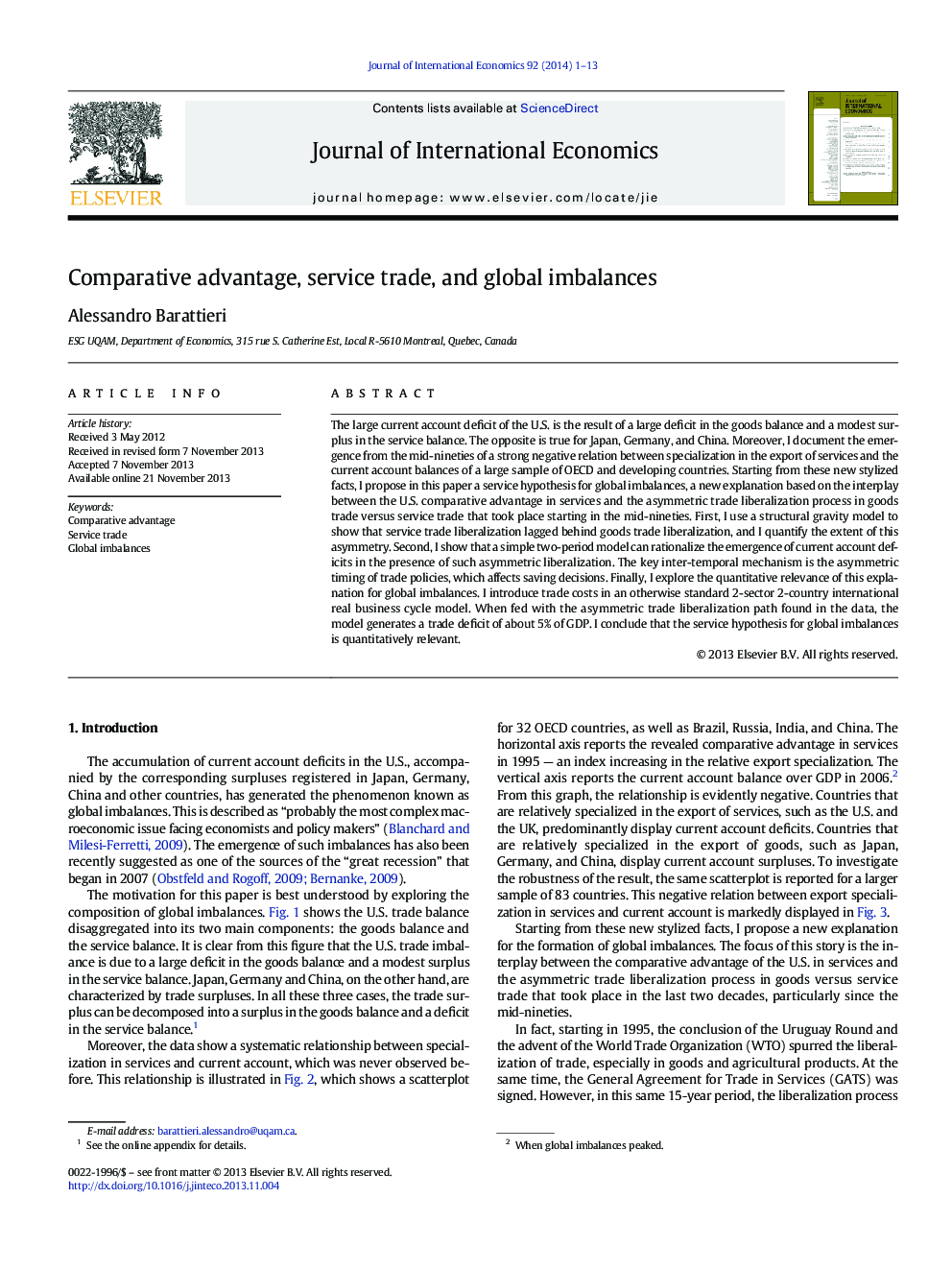| کد مقاله | کد نشریه | سال انتشار | مقاله انگلیسی | نسخه تمام متن |
|---|---|---|---|---|
| 962464 | 930112 | 2014 | 13 صفحه PDF | دانلود رایگان |
عنوان انگلیسی مقاله ISI
Comparative advantage, service trade, and global imbalances
ترجمه فارسی عنوان
مزیت نسبی، تجارت خدمات و عدم تعادل جهانی
دانلود مقاله + سفارش ترجمه
دانلود مقاله ISI انگلیسی
رایگان برای ایرانیان
کلمات کلیدی
برتری نسبی، تجارت خدمات، عدم تعادل جهانی،
موضوعات مرتبط
علوم انسانی و اجتماعی
اقتصاد، اقتصادسنجی و امور مالی
اقتصاد و اقتصادسنجی
چکیده انگلیسی
The large current account deficit of the U.S. is the result of a large deficit in the goods balance and a modest surplus in the service balance. The opposite is true for Japan, Germany, and China. Moreover, I document the emergence from the mid-nineties of a strong negative relation between specialization in the export of services and the current account balances of a large sample of OECD and developing countries. Starting from these new stylized facts, I propose in this paper a service hypothesis for global imbalances, a new explanation based on the interplay between the U.S. comparative advantage in services and the asymmetric trade liberalization process in goods trade versus service trade that took place starting in the mid-nineties. First, I use a structural gravity model to show that service trade liberalization lagged behind goods trade liberalization, and I quantify the extent of this asymmetry. Second, I show that a simple two-period model can rationalize the emergence of current account deficits in the presence of such asymmetric liberalization. The key inter-temporal mechanism is the asymmetric timing of trade policies, which affects saving decisions. Finally, I explore the quantitative relevance of this explanation for global imbalances. I introduce trade costs in an otherwise standard 2-sector 2-country international real business cycle model. When fed with the asymmetric trade liberalization path found in the data, the model generates a trade deficit of about 5% of GDP. I conclude that the service hypothesis for global imbalances is quantitatively relevant.
ناشر
Database: Elsevier - ScienceDirect (ساینس دایرکت)
Journal: Journal of International Economics - Volume 92, Issue 1, January 2014, Pages 1-13
Journal: Journal of International Economics - Volume 92, Issue 1, January 2014, Pages 1-13
نویسندگان
Alessandro Barattieri,
